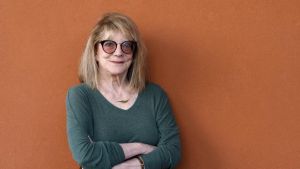One of our staff members is contributing considerably to a News Archiving service at Mu. Any well educated (Masters, PhD or above) users who wish to make comments on news sites, please contact Jim Burton directly rather than using this list, and we can work on maximising view count.
Elizabeth Loftus

Elizabeth F. Loftus (born 1944) is an American psychologist who is best known in relation to the misinformation effect, false memory and criticism of recovered memory therapies. Her research also questions false memories of (mutually willing/unwilling) minor-older sexual contact, referred to in her research under a "child sexual abuse" (CSA) framework. She is a member / honorary member of many scholarly organizations, has received numerous awards for her research, and has provided expert testimony for lawyers in over 300 court cases - most recently in the Ghislaine Maxwell trial.
In 2010, Loftus wrote a review of Susan Clancy's book The Trauma Myth (2010), called Bad Theories Can Harm Victims,[1] writing that:
She and others have uncovered innumerable victims who did experienced abuse, but did not experience it as traumatic or and did not fully understand what was being done. These victims are unwittingly made to feel guilty since their cases do not fit with the popular theory. In the interests of minimizing harm to them, and in the name of good science, the conventional one-size-fits-all trauma model ought to be discarded.
Who abused Jane Doe?
In 1997, psychiatrists David Corwin and Erna Olafson published a case study of a recovered memory of apparently genuine childhood sexual abuse, which became known as the Jane Doe case.[2] As described in an article by Carol Tavris:
After reading David Corwin’s account of Jane Doe in the journal Child Maltreatment in 1997, Loftus and Guyer decided to examine his alleged evidence of a recovered memory of sexual abuse. [...] They began by looking into documents in the public record. They found a public court case of “Jane Doe” who fit the description in Corwin’s article, but the court records differed from Corwin’s account in significant ways. They eventually met Jane Doe’s mother, and became convinced that she had been falsely accused many years before, leading to the loss of custody of her daughter.[3]
As Tavris details, in response to their investigating, Jane contacted the University of Washington and accused Loftus of breaching her privacy. The university put Loftus under investigation, including confiscating her files. The investigation lasted for 21 months, during which time Loftus was not allowed to share her findings. Eventually, the university cleared Loftus of breaking research protocols, and Loftus and Guyer published their findings in a 2002, 2-part article entitled Who Abused Jane Doe?[4]
The abstract read:
Case histories make contributions to science and practice, but they can also be highly misleading. We illustrate with our re-examination of the case of Jane Doe; she was videotaped twice, once when she was six years old and then eleven years later when she was seventeen. During the first interview she reported sexual abuse by her mother. During the second interview she apparently forgot and then remembered the sexual abuse. Jane’s case has been hailed by some as the new proof of recovery of repressed or dissociated traumatic memories, and even as proof of the reliability of recovered memories of repeated abuse. Numerous pieces of “supporting evidence” were given in the original article for believing that the abuse occurred. Upon closer scrutiny, however, there are reasons to doubt not only the “supporting evidence,” but also that the sexual abuse ever happened in the first place. Our analysis raises several general questions about the use of case histories in science, medicine, and mental health. There is a cautionary tale not only for those professionals who advance the case history, but also for those who base their theories on it or would readily accept it as proof.
As well as her scientific work, Loftus has provided expert testimony or consultation for lawyers in over 300 court cases, including testifying for the defence of Ghislaine Maxwell in her 2021 trial for allegedly moving minors across borders for sexual purposes (sex-trafficking), and Harvey Weinstein in 2020, accused of non-consensual sexual contact (sexual assault) of two women. Loftus has also been involved with the cases of Ted Bundy, O.J. Simpson, Rodney King, Oliver North, Martha Stewart, Lewis Libby, Michael Jackson, the Menendez brothers and the Oklahoma City bombers.
She has also written many books, including The Myth of Repressed Memory: False Memories & Allegations of Sexual Abuse, and Witness for the Defense.
